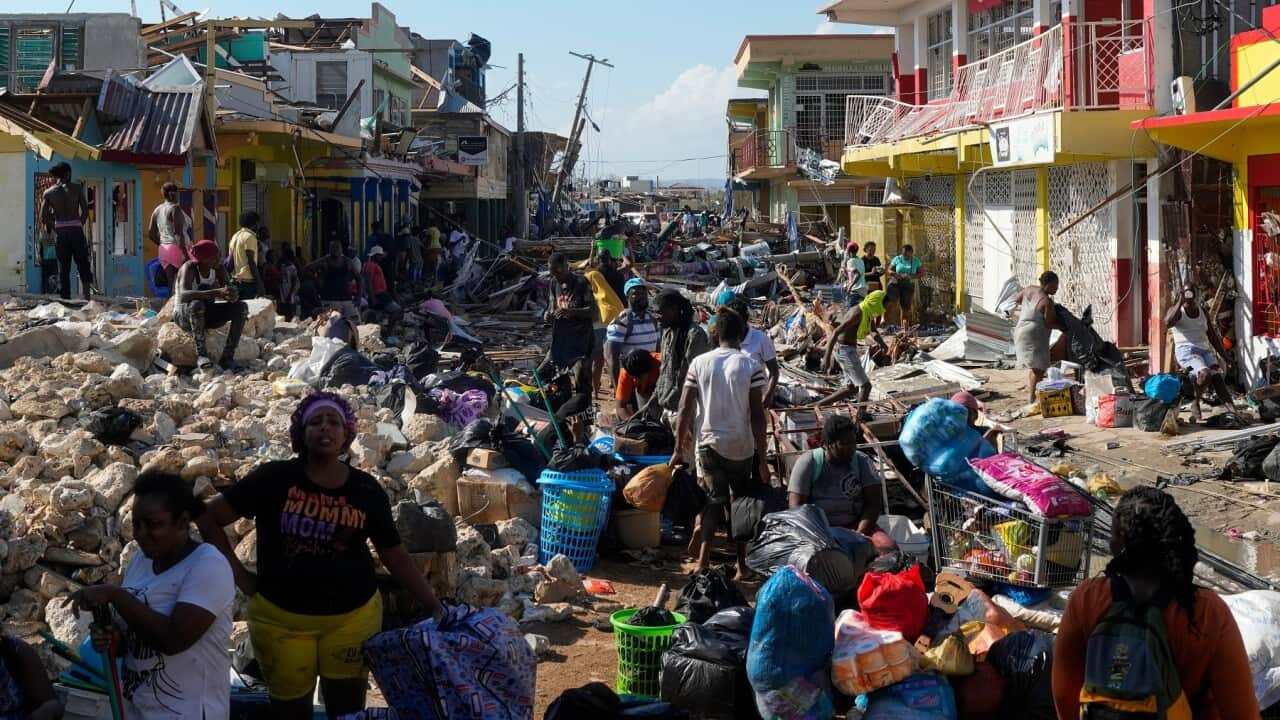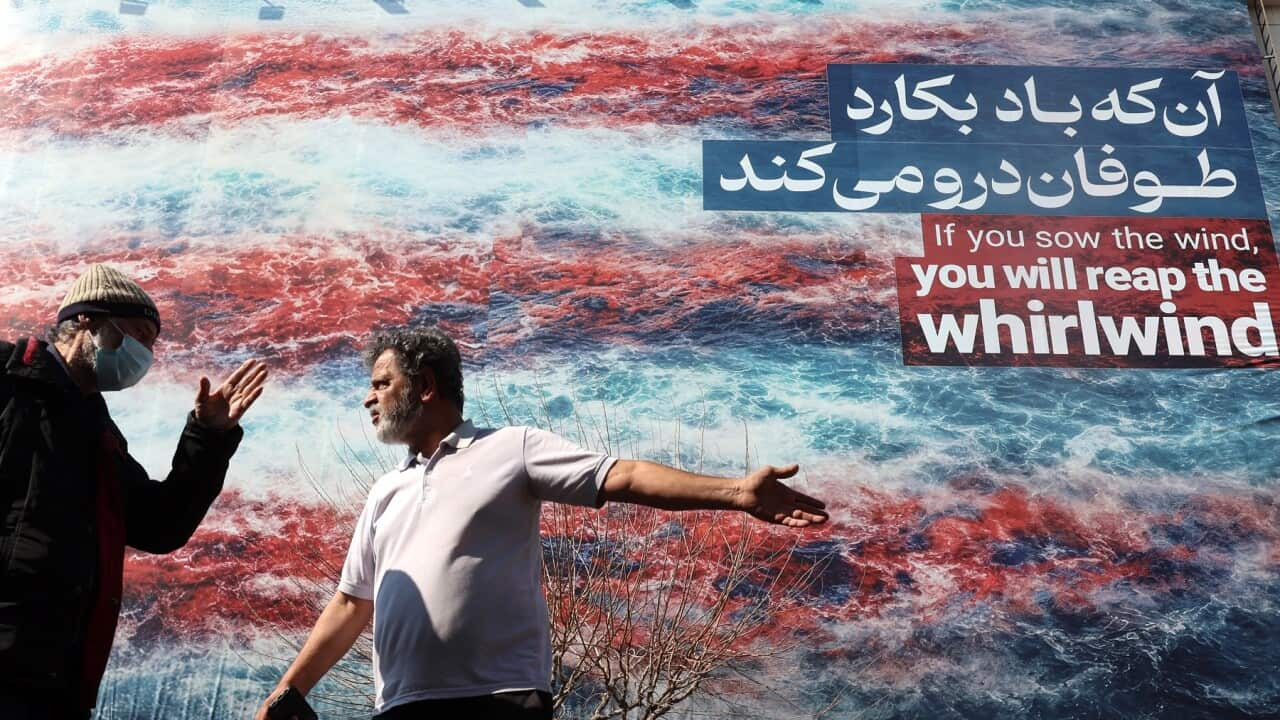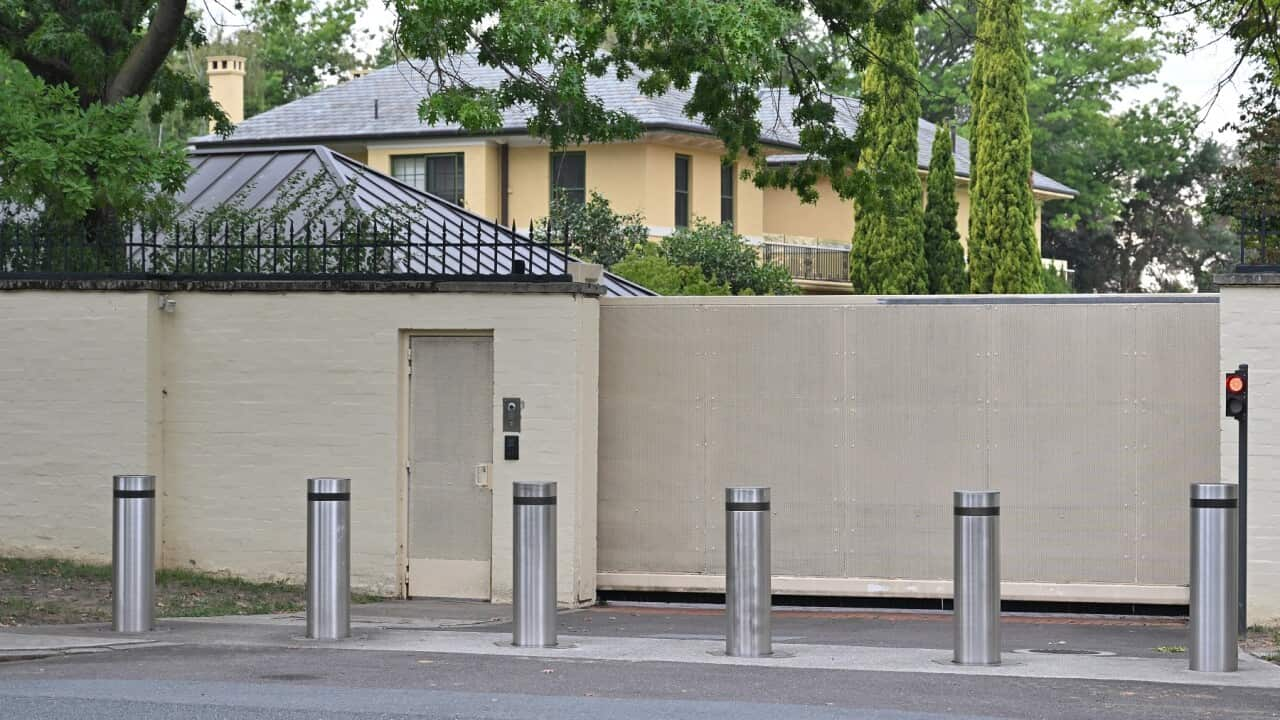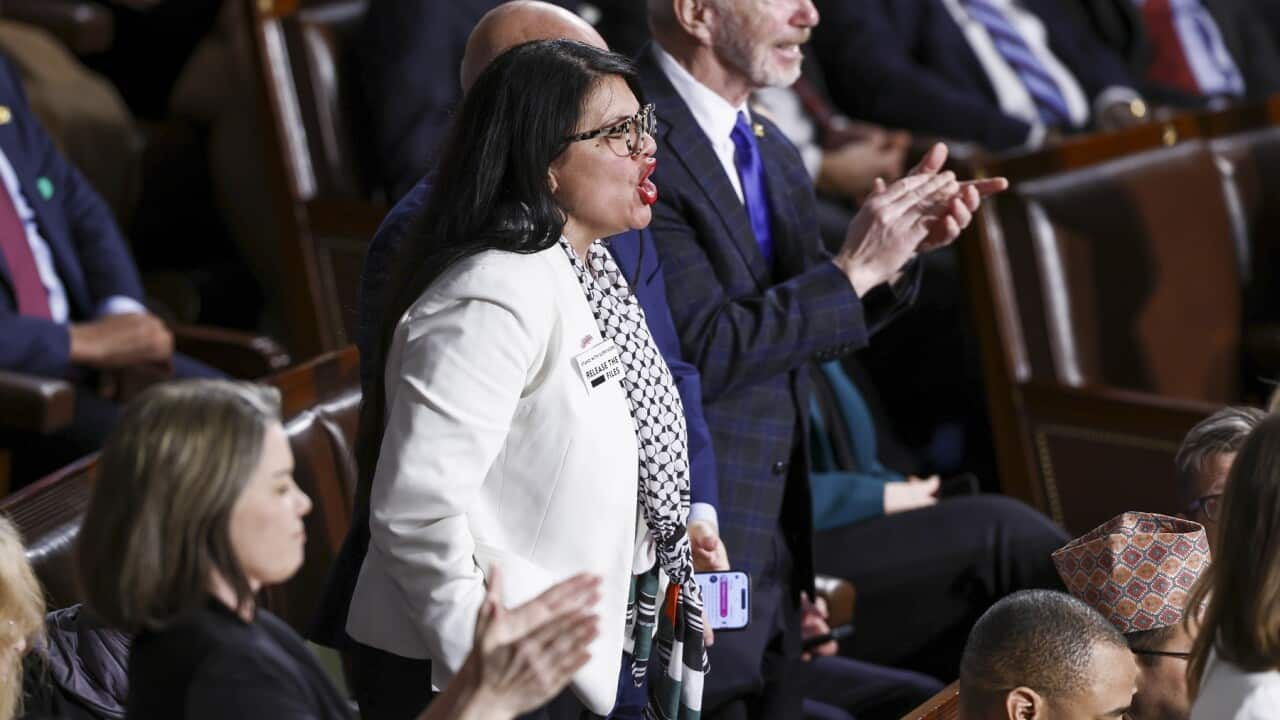Listen to Australian and world news, and follow trending topics with SBS News Podcasts.
TRANSCRIPT
Hurricane Melissa has carved a devastating path through the northern Caribbean, battering Jamaica, Cuba and Haiti before moving towards Bermuda.
One of the most powerful Atlantic storms on record, it has left thousands homeless, severed power and communications, and laid bare the region’s deep humanitarian fragility.
At the United Nations, officials painted a bleak picture of eastern Cuba, where Melissa made landfall earlier in the week.
Speaking at the United Nations, Francisco Pishon, the Resident U-N Coordinator for Cuba, described the widespread damage to homes, hospitals and farmland.
"In terms of damages, a lot of housing destruction, broadly, critical infrastructure are also affected, including health facilities, schools, power lines, telecommunications has been a challenge so far. Also, food production has been compromised after such extensive damage on crops and farmland."
He says the crisis has been compounded by drought, persistent power cuts and economic sanctions that restrict Cuba’s access to international finance.
In Santiago province, more than 140,000 residents remain isolated, while 735,000 people were evacuated ahead of the storm.
Remarkably, he says, no deaths have been reported.
President Miguel Díaz-Canel credited the country’s disaster-preparedness system.
"The fact that the population of the eastern provinces has withstood this brutal attack by the monstrous Hurricane Melissa without any reported loss of life so far is not a miracle, but rather the result of a process of preparation, organisation, and discipline."
Energy Minister Vicente de la O'Levy added that the country’s solar-energy network escaped largely unscathed.
Meanwhile, in neighbouring Haiti, torrential rain and flash floods killed at least 25 people, mostly in Petit-Goave, west of Port-au-Prince, where rivers burst their banks.
UN humanitarian coordinator Gregoire Goodstein says the storm struck a nation already gripped by crisis, with millions displaced by violence, widespread hunger and a resurgence of cholera.
"This all comes on top of an immense humanitarian crisis that Haiti has been facing for a number of years, right? We have 1.4 million people that are displaced because of gang violence. ... There's also 5.7 million people, which is about half of the population, that is going hungry every day. ... And then finally, I'll add that our humanitarian response plan is grossly underfunded. It's 87 per cent underfunded, and this is really putting at risk our ability to conduct lifesaving operations."
Further west, in Jamaica, Melissa struck as a Category 5 monster with winds nearing 300 kilometres an hour, flattening homes and flooding towns.
In the fishing village of Alligator Pond, locals like 56-year-old Dahlia Bailey were clearing debris.
"Well, I think it's going to be rough and I think we're going to have people that get injured, worse than, you know, worse than what we thought about. And a lot of people lost a roof and so forth. But we still have to pick up the pieces and move on."
Drone footage shows vast stretches of St Elizabeth Parish still underwater, with more than half a million people without electricity.
As Melissa approached Jamaica, another storm brewed online, with a flood of AI-generated fake videos spreading across social media.
Authorities warned these clips, many stamped with OpenAI’s Sora watermark, distracted from real safety alerts, and preyed on people's goodwill.
Andrew Wheatley is the Minister responsible for Science, Technology and Special Projects and warns anyone looking to offer donations to take care.
"The Jamaica Cyber Incident Response Team, Jamaica CERT, is issuing an urgent alert to the public in Jamaica and worldwide regarding the emergence of fraudulent websites attempting to exploit generosity in the wake of Hurricane Melissa. Jamaica search monitoring systems have detected multiple suspicious domains currently under development that appear designed to divert hurricane relief donations away from legitimate channels."
Dana Morris Dixon, Jamaica's minister of education, skills, youth and information, says many governments have offered to assist in the clean-up and recovery efforts.
"We've gotten support from the US government. We've gotten support from the EU, from the UK. All of our Caribbean brothers and sisters have pledged support. I know Trinidad, last night we were on the phone with them and they have a shipment coming to Jamaica. Many other entities around the world have pledged their support and we are so grateful to all of them for that support."
As the Caribbean begins its long recovery, the U-N estimates damages could exceed A$33 billion, with full rebuilding likely to take a decade.
Yet amid the wreckage, communities across the region, and abroad, are already rallying to rebuild lives and livelihoods.













